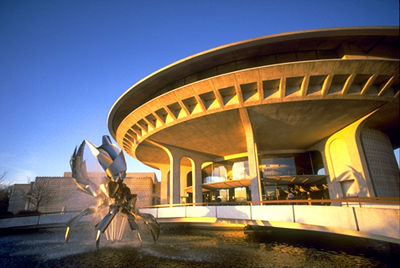Article
Kimmirut
Kimmirut, Nunavut, incorporated as a hamlet in 1982, population 455 (2011c), 411 (2006c). The Hamlet of Kimmirut is located on the south coast of Baffin Island, approximately 120 km southwest of Iqaluit.

Enter your search term
Signing up enhances your TCE experience with the ability to save items to your personal reading list, and access the interactive map.
Create AccountArticle
Kimmirut, Nunavut, incorporated as a hamlet in 1982, population 455 (2011c), 411 (2006c). The Hamlet of Kimmirut is located on the south coast of Baffin Island, approximately 120 km southwest of Iqaluit.
"https://www.thecanadianencyclopedia.ca/images/tce_placeholder.jpg?v=e9dca980c9bdb3aa11e832e7ea94f5d9" // resources/views/front/categories/view.blade.phphttps://www.thecanadianencyclopedia.ca/images/tce_placeholder.jpg?v=e9dca980c9bdb3aa11e832e7ea94f5d9

Article
Kincardine, Ont, incorporated as a municipality in 1999, population 11 174 (2011c), 11 173 (2006c). The Municipality of Kincardine is located along the shore of Lake Huron, about 225 km northwest of Toronto and 80 km southwest of Owen Sound.
"https://www.thecanadianencyclopedia.ca/images/tce_placeholder.jpg?v=e9dca980c9bdb3aa11e832e7ea94f5d9" // resources/views/front/categories/view.blade.phphttps://www.thecanadianencyclopedia.ca/images/tce_placeholder.jpg?v=e9dca980c9bdb3aa11e832e7ea94f5d9

Article
Kindersley, Sask, incorporated as a town in 1911, population 4678 (2011c), 4412 (2006c). The Town of Kindersley is located in west-central Saskatchewan, 200 km southwest of Saskatoon and 65 km east of the Alberta border.
"https://www.thecanadianencyclopedia.ca/images/tce_placeholder.jpg?v=e9dca980c9bdb3aa11e832e7ea94f5d9" // resources/views/front/categories/view.blade.phphttps://www.thecanadianencyclopedia.ca/images/tce_placeholder.jpg?v=e9dca980c9bdb3aa11e832e7ea94f5d9

Article
Kingston, Ontario, incorporated as a city 1846, population 132,485 (2021 census), 123,798 (2016 census). Kingston was first settled in 1783, incorporated as a town in 1838 and as a city in 1846. It is located approximately 175 km southwest of Ottawa, 290 km west of Montreal and 260 km east of Toronto. The former capital of the Province of Canada (1841), Kingston’s position at the junction of the Great Lakes and St. Lawrence River, its proximity to the border with the United States and the dominance of the Canadian Shield in its surrounding area, have been crucial to its settlement, political and economic history.
"https://d3d0lqu00lnqvz.cloudfront.net/media/media/5de2aed2-3622-4d06-8d8f-e28c382a7566.jpg" // resources/views/front/categories/view.blade.phphttps://d3d0lqu00lnqvz.cloudfront.net/media/media/5de2aed2-3622-4d06-8d8f-e28c382a7566.jpg

Article
Kingsville, Ont, incorporated as a town in 1901, population 21 362 (2011c), 20 908 (2006c). The Town of Kingsville amalgamated with the townships of Gosfield South and Gosfield North in 1998. Kingsville is located about 40 km southeast of WINDSOR, in Essex County on the north shore of Lake Erie.
"https://www.thecanadianencyclopedia.ca/images/tce_placeholder.jpg?v=e9dca980c9bdb3aa11e832e7ea94f5d9" // resources/views/front/categories/view.blade.phphttps://www.thecanadianencyclopedia.ca/images/tce_placeholder.jpg?v=e9dca980c9bdb3aa11e832e7ea94f5d9

Article
Kippens, NL, incorporated as a town in 1968, population 1815 (2011c), 1739 (2006c). The Town of Kippins is located on the west coast of Newfoundland to the west of STEPHENVILLE and overlooking St George's Bay.
"https://d3d0lqu00lnqvz.cloudfront.net/media/media/e2405cb4-4c61-42e3-9436-6f0c2ad15670.jpg" // resources/views/front/categories/view.blade.phphttps://d3d0lqu00lnqvz.cloudfront.net/media/media/e2405cb4-4c61-42e3-9436-6f0c2ad15670.jpg

Article
The town began with an edict by King Louis the XIV of France on 29 June 1711 which established the parish of St-Joachim de Pointe-Claire. A civil parish was established 11 years later on 3 March 1722. On 1 July 1845, the parish came under the control of the clergy.
"https://d3d0lqu00lnqvz.cloudfront.net/media/media/957abd37-5418-464b-9c53-740d485debeb.jpg" // resources/views/front/categories/view.blade.phphttps://d3d0lqu00lnqvz.cloudfront.net/media/media/957abd37-5418-464b-9c53-740d485debeb.jpg

Article
Kirkland Lake, Ont, incorporated as a town in 1972, population 8133 (2011c), 8248 (2006c). The Town of Kirkland Lake is located 241 km northwest of North Bay.
"https://www.thecanadianencyclopedia.ca/images/tce_placeholder.jpg?v=e9dca980c9bdb3aa11e832e7ea94f5d9" // resources/views/front/categories/view.blade.phphttps://www.thecanadianencyclopedia.ca/images/tce_placeholder.jpg?v=e9dca980c9bdb3aa11e832e7ea94f5d9

Article
Kitchener, Ontario, incorporated as a city in 1912, population 256,885 (2021 census), 233,222 (2016 census). Waterloo, Ontario, incorporated as a city in 1948, population 121,436 (2021 census), 104,986 (2016 census). The twin cities of Kitchener-Waterloo are located in central southwestern Ontario, 105 km southwest of Toronto. Each retains its own political culture within a common historical framework and with similar, but by no means identical, socio-economic developments. Kitchener (originally named Berlin), the larger of the two, was the county seat (1853), judicial and financial centre of Waterloo County from 1853 to 1973. It continues to have a predominant influence in the Regional Municipality of Waterloo, which was formed in 1973 by combining several communities and cities, including Kitchener, Waterloo and Cambridge.
"https://d3d0lqu00lnqvz.cloudfront.net/media/media/936bad19-168e-4c98-a747-201f5eb2cefa.jpg" // resources/views/front/categories/view.blade.phphttps://d3d0lqu00lnqvz.cloudfront.net/media/media/936bad19-168e-4c98-a747-201f5eb2cefa.jpg

Article
Kitimat, British Columbia, incorporated as a district municipality in 1953, population 8,236 (2021 census), 8,131 (2016 census). The district of Kitimat is located at the head of the Douglas Channel, 206 km east of Prince Rupert by road. Its name comes from the Tsimshian term for the Haisla inhabitants of the area, Kitamaat (“people of the snow”). The modern community was founded in the early 1950s.
"https://d3d0lqu00lnqvz.cloudfront.net/media/new_article_images/Kitimat/Kitimat_2008.jpg" // resources/views/front/categories/view.blade.phphttps://d3d0lqu00lnqvz.cloudfront.net/media/new_article_images/Kitimat/Kitimat_2008.jpg

Article
Kitsilano, a 549 ha waterfront section of VANCOUVER, incorporated into that city in 1886. It stretches south from English Bay to 16th Avenue and east from Alma to Burrard street.
"https://d3d0lqu00lnqvz.cloudfront.net/media/media/a1d97bef-a8f5-4fa4-89fe-aadf1c0107f6.jpg" // resources/views/front/categories/view.blade.phphttps://d3d0lqu00lnqvz.cloudfront.net/media/media/a1d97bef-a8f5-4fa4-89fe-aadf1c0107f6.jpg

Article
Kleinburg, Ont, straddles a hogback between 2 branches of the Humber River 40 km NW of Toronto. It has no legal entity, being part of the sprawling city of Vaughan (formerly Vaughan Township), and therefore no official boundaries. Founded around 1847 by an Alsatian immigrant, John Kline (sic), who built the first gristmill, it is known today as the site of one of Canada's largest art galleries, the McMichael Canadian Art Collection; for the Toronto...
"https://www.thecanadianencyclopedia.ca/images/tce_placeholder.jpg?v=e9dca980c9bdb3aa11e832e7ea94f5d9" // resources/views/front/categories/view.blade.phphttps://www.thecanadianencyclopedia.ca/images/tce_placeholder.jpg?v=e9dca980c9bdb3aa11e832e7ea94f5d9

Article
Klondike (also spelled Klondyke). The name is derived from a Gwich'in word, thron-duick (hammer river), and identifies a town, a river, and a range of hills in the Yukon.
"https://www.thecanadianencyclopedia.ca/images/tce_placeholder.jpg?v=e9dca980c9bdb3aa11e832e7ea94f5d9" // resources/views/front/categories/view.blade.phphttps://www.thecanadianencyclopedia.ca/images/tce_placeholder.jpg?v=e9dca980c9bdb3aa11e832e7ea94f5d9

Article
Ksan (or ‘Ksan) is a historical village, museum and campground, owned and operated by the Gitanmaax Band. It is located at the junction of the Skeena and Bulkley rivers in Hazelton, British Columbia. Ksan was established in 1970 as way to promote and preserve Gitxsan culture and history.
"https://d3d0lqu00lnqvz.cloudfront.net/media/media/2fd73ae3-5ed7-4894-b6ae-caa2ac25e639.jpg" // resources/views/front/categories/view.blade.phphttps://d3d0lqu00lnqvz.cloudfront.net/media/media/2fd73ae3-5ed7-4894-b6ae-caa2ac25e639.jpg

Article
Kugaaruk, Nunavut, incorporated as a hamlet in 1972, population 771 (2011c), 688 (2006c). The Hamlet of Kugaaruk is located in the northeastern Arctic on the coast within Pelly Bay
"https://www.thecanadianencyclopedia.ca/images/tce_placeholder.jpg?v=e9dca980c9bdb3aa11e832e7ea94f5d9" // resources/views/front/categories/view.blade.phphttps://www.thecanadianencyclopedia.ca/images/tce_placeholder.jpg?v=e9dca980c9bdb3aa11e832e7ea94f5d9
